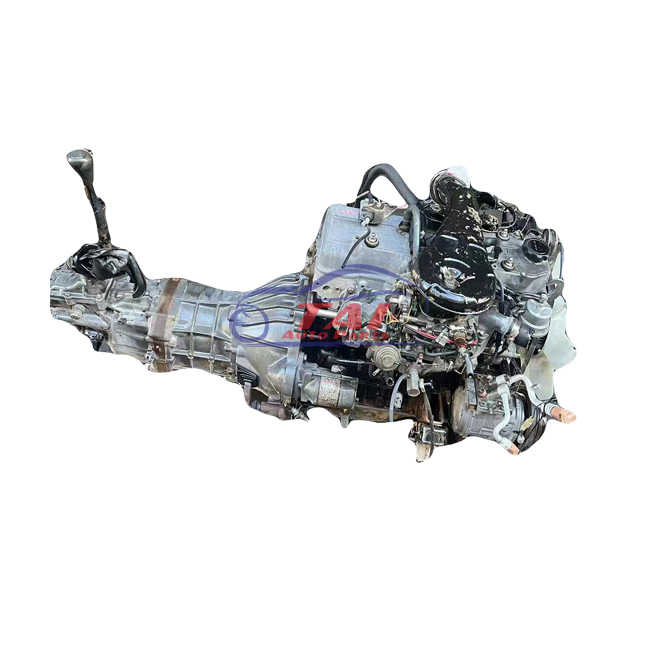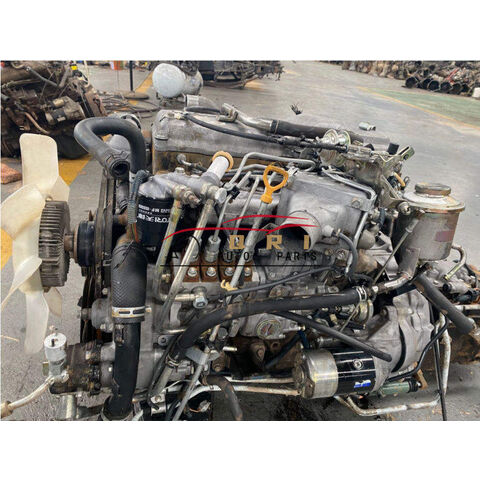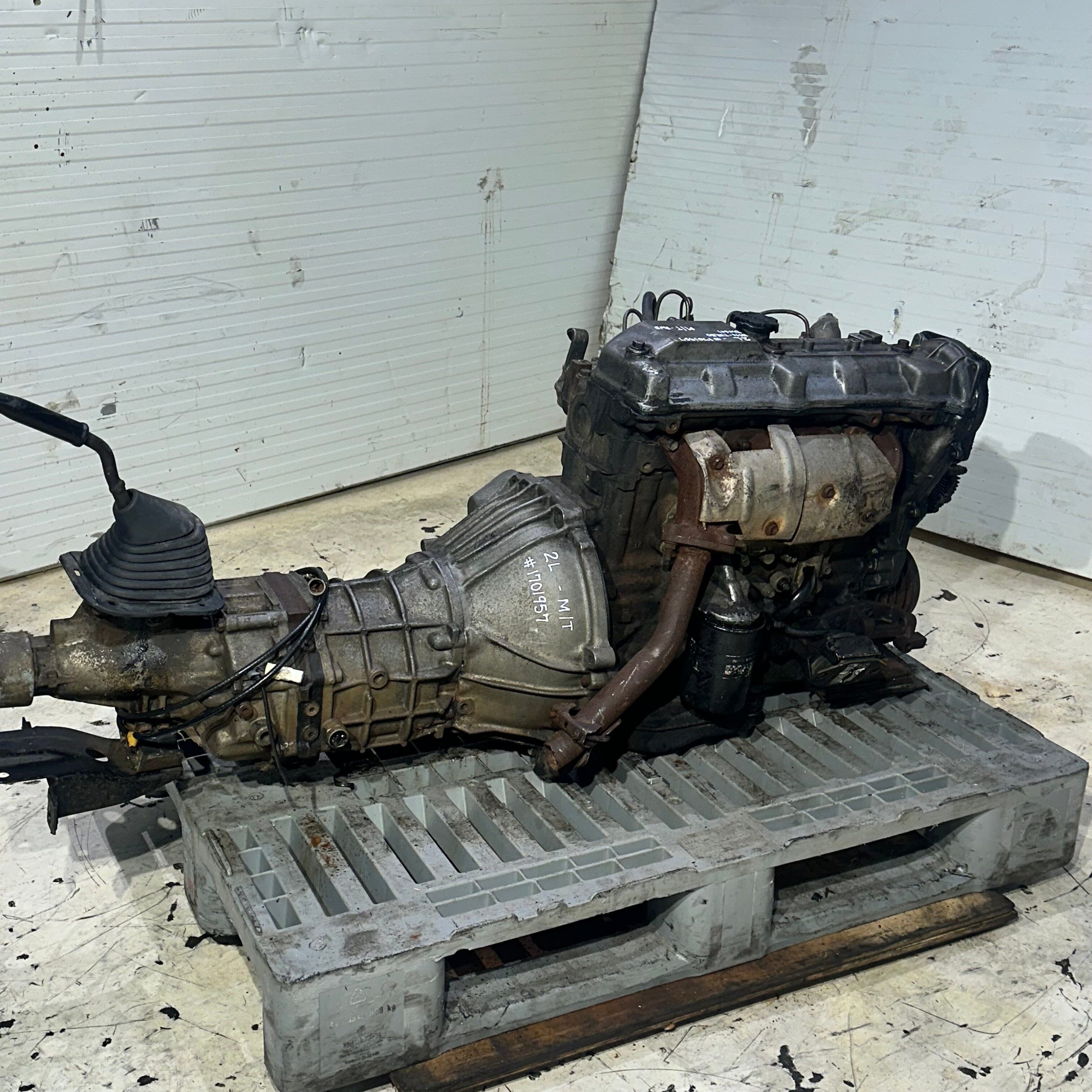Contrasting the Toyota RunX RSI to Various Other Compact Efficiency Cars
Contrasting the Toyota RunX RSI to Various Other Compact Efficiency Cars
Blog Article
Explore Quality and Worth: Your Overview to Acquiring a Second Hand Engine
When taking into consideration the acquisition of a used engine, recognizing the complex balance between high quality and worth is vital. A thorough examination of engine history, condition, and dependability is important to ensure a sound investment. By carrying out correct evaluations and research study, prospective buyers can navigate the intricacies of the marketplace extra properly. Nevertheless, the nuances of warranty options and pricing approaches can significantly influence the total decision-making process. As you consider these factors, one inquiry remains: what particular elements will ultimately assist your choice in this crucial investment?
Recognizing Engine Types
When thinking about the purchase of a second-hand engine, understanding of the numerous engine kinds is essential for making a notified choice. Engines can usually be classified into two primary types: inner combustion engines and electric engines.
On the various other hand, electrical engines make use of electrical power stored in batteries to power the vehicle, providing a cleaner option with fewer moving parts and minimized upkeep requirements. Within these groups, there are further distinctions, such as four-stroke versus two-stroke interior combustion engines, and various electric motor setups.
Recognizing these distinctions is essential, as they impact performance, compatibility with existing car systems, and long-term operational costs. By familiarizing oneself with the numerous kinds of engines available, prospective customers can better evaluate their requirements and choose that align with their vehicle's requirements and their personal choices.

Assessing Engine Problem
A thorough assessment of engine condition is extremely important for any person taking into consideration the purchase of a used engine. Start with an aesthetic assessment; check for indications of oil leaks, corrosion, or any physical damage to the engine block. A clean engine is frequently a sign of good upkeep techniques, while extreme grime may suggest neglect.
Following, assess the engine's parts, consisting of the timing belt, gaskets, and seals. Search for wear and tear, as these parts can be costly to change. In addition, analyze the engine mounts, as harmed mounts might result in vibrations and more mechanical issues.
A compression examination is necessary to evaluate inner engine wellness. Consistent compression across all cyndrical tubes indicates a properly maintained engine, whereas considerable discrepancies might indicate internal damages or wear.
Paying attention to the engine throughout a start-up can give useful understandings; any uncommon noises, such as knocking or rattling, may recommend deeper issues. Finally, if feasible, request a trial run to review performance under lots. By thoroughly evaluating these variables, prospective buyers can make enlightened decisions and protect a quality second-hand engine.
Checking Engine Background
Comprehending the engine's history is critical for making a knowledgeable acquisition. Expertise of previous usage, upkeep records, and any kind of past problems can substantially influence the engine's integrity and longevity. Start by requesting the lorry identification number (VIN) or engine identification number, which enables you to trace the engine's background.
Make use of offered resources, such as Carfax or AutoCheck, to obtain an automobile background report. This record will give vital insights, including accident history, service records, and previous possession information. Toyota RunX RSI. Pay particular attention to any type of indicators of severe damages or duplicated fixings, which might show underlying problems
Inquire about maintenance regimens done on the engine. Routine oil modifications, timing belt substitutes, and various other safety nets mirror accountable ownership. Additionally, linked here ask if the engine has gone through any type of adjustments, as non-standard alterations can impact efficiency and compatibility with your automobile.
Finally, if possible, seek verification from a trusted mechanic that can assess the engine's problem based upon its history (Toyota RunX RSI). This detailed investigation will certainly assist you avoid possible risks and guarantee that your financial investment is beneficial and audio
Guarantee and Return Plans
Buying a used engine usually features differing guarantee and return plans that can substantially affect your choice. When thinking about a made use of engine, it is important to thoroughly evaluate the service warranty options offered by the seller. Some suppliers may supply minimal service warranties that cover particular components for a specified period, while others may give more detailed protection. Recognizing the problems and terms affixed to these warranties is vital, as they can affect the long-lasting value and integrity of your purchase.

In addition, credible vendors often provide documents that lays out the service warranty and return procedure, making certain transparency. Always request this info prior to completing your purchase. A well-defined guarantee and return policy can give tranquility of mind and shield your financial investment, making it an indispensable part of the decision-making process when buying a second-hand engine.
Finding the Finest Offers
When looking for the very best offers on a used engine, it is crucial to conduct thorough research study and contrast costs from various sellers. Start by checking out on the internet marketplaces, automotive online forums, and regional salvage lawns to gather these details a thorough understanding of the marketplace. Making use of rate comparison tools can streamline this process, highlighting affordable prices across various systems.

Consider timing your acquisition purposefully. Seasonal changes in demand can affect costs, with specific times of the year offering much better deals. Furthermore, be open to discussing prices; lots of vendors may want to lower their asking cost, specifically if the engine has been detailed for an extensive period.
Conclusion
In recap, purchasing a second-hand engine requires an extensive analysis of high quality and value. Reviewing engine condition with examinations and inspections, confirming its background, and comprehending service warranty and return plans are vital actions. Additionally, contrasting prices across different sellers makes sure the ideal financial decision. By sticking to these guidelines, buyers can improve their possibilities of getting a trustworthy engine that fulfills their needs while avoiding prospective pitfalls connected with pre-owned purchases.
When thinking about the purchase of a second-hand engine, understanding of the numerous engine kinds is crucial for making pop over to these guys an educated decision. Engines can generally be classified right into 2 primary types: interior combustion engines and electric engines. Fuel engines are typically lighter and rev higher, making them ideal for efficiency automobiles, while diesel engines are renowned for their torque and fuel efficiency, often preferred in durable applications.
A complete assessment of engine problem is vital for anybody considering the acquisition of a used engine. Beginning by requesting the vehicle recognition number (VIN) or engine serial number, which permits you to map the engine's background.
Report this page